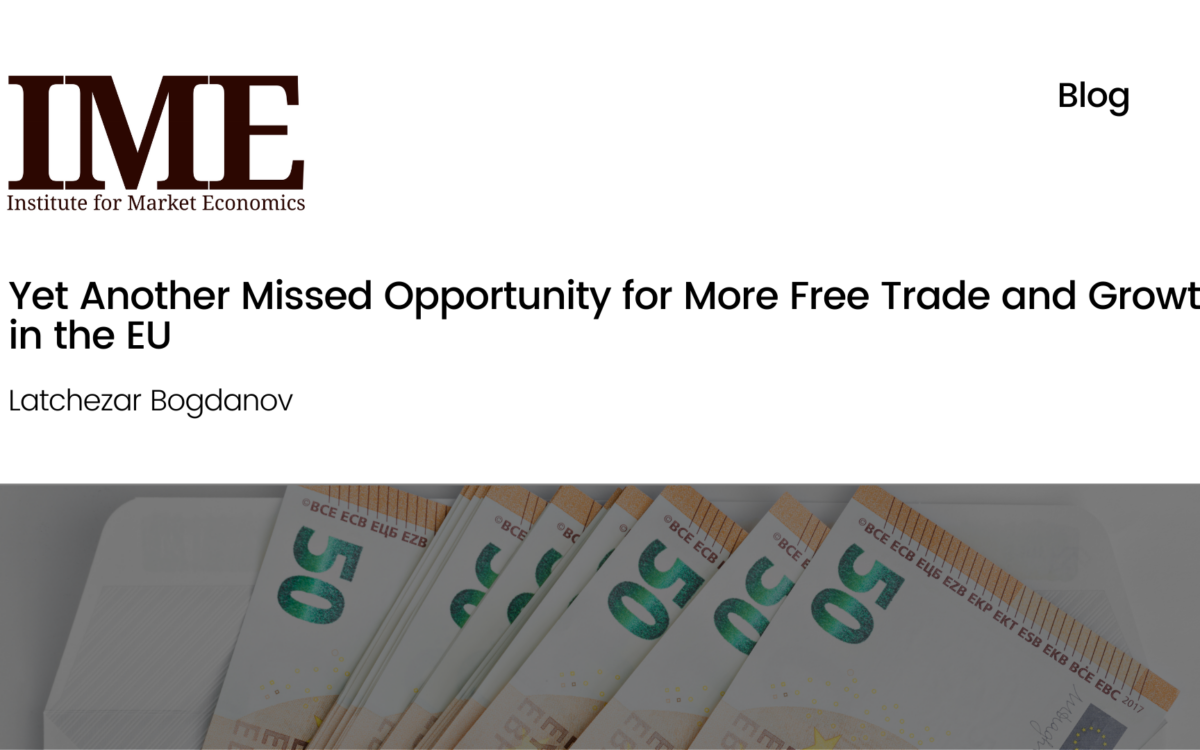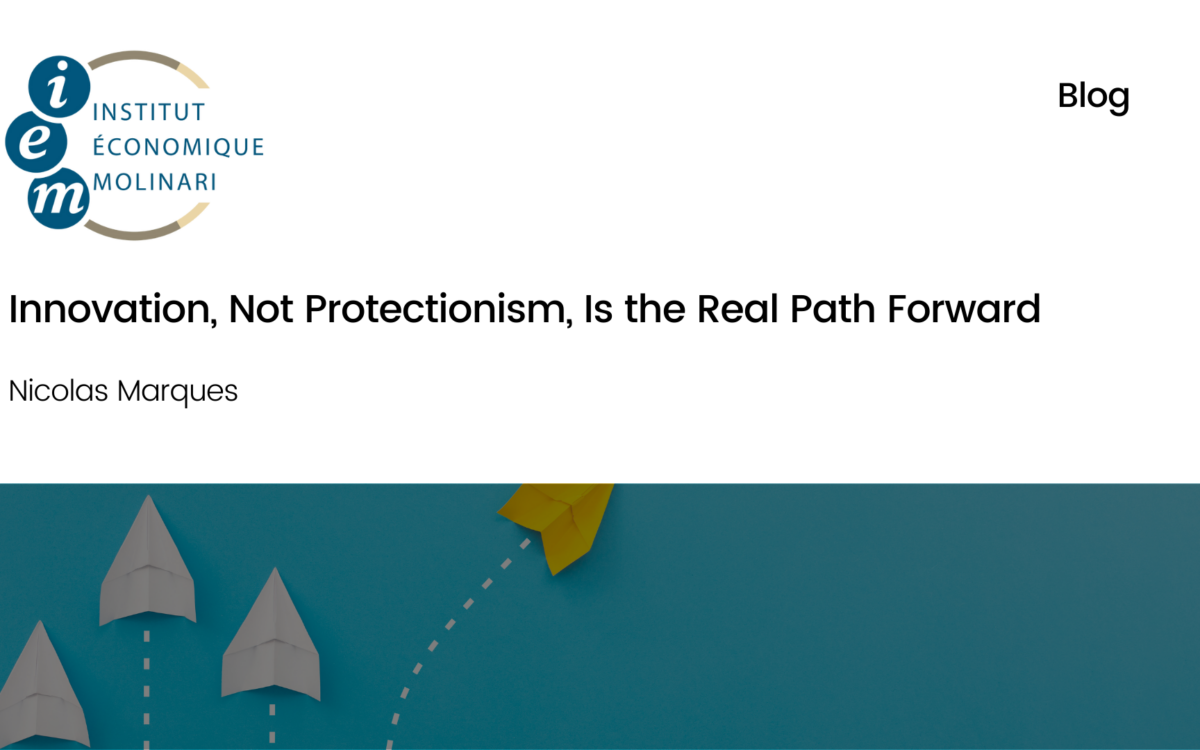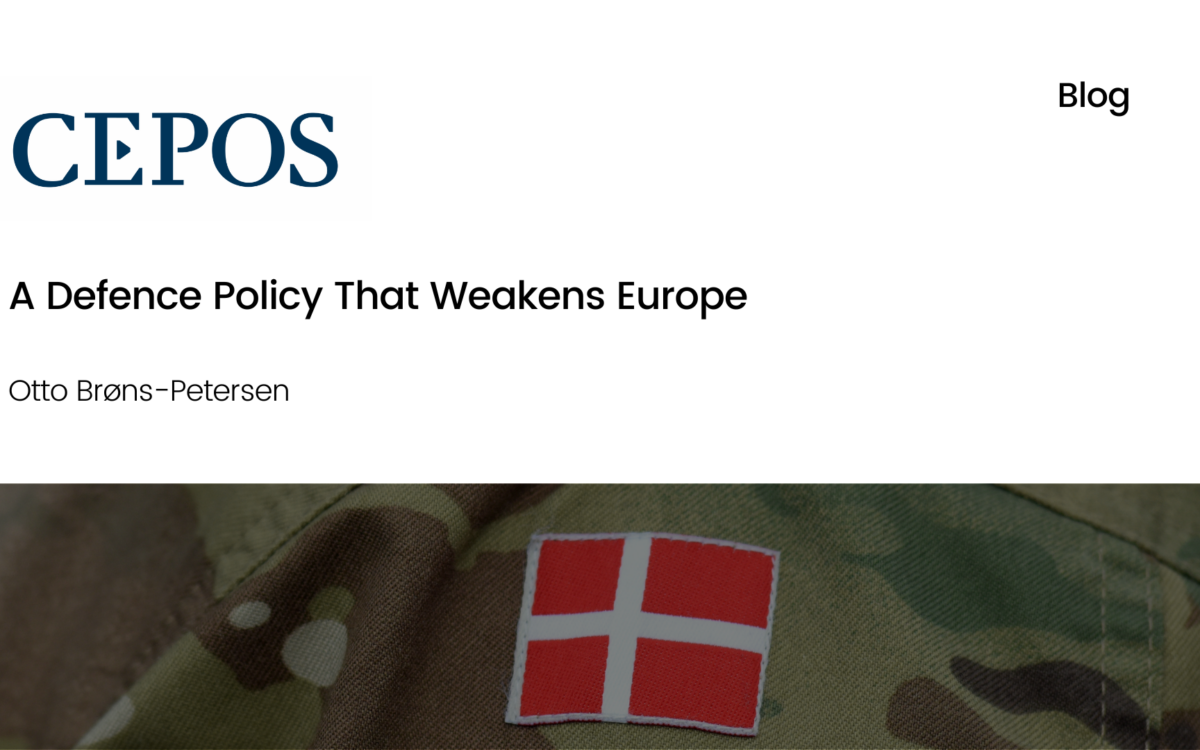We Should Encourage International Competition – Including From China

We Should Encourage International Competition – Including From China
Martin Ågerup // 15 August 2023
For a quarter of a millennium, economists have been trying to dispel the myth that exports are fruitful for a country while imports are not. This is known as mercantilism and was refuted by Adam Smith in 1776. In fact, the truth is almost the opposite: There are actually no valid reasons to export anything if there are no goods and services from other countries that one would like to import. Running a trade surplus implies giving goods away to foreign countries without receiving any compensation in return other than foreign currency. That may appear advantageous, but only if the plan is to eventually purchase something with it from a country using that currency.
So, the purpose of exporting is to be able to import. Importing is highly beneficial for the population at large. It provides us with a greater variety of goods to choose from and fosters more competition, leading to lower prices, which is tantamount to higher real wages and prosperity. Competition from abroad forces domestic companies to improve their performance to keep market shares. This makes them more productive and innovative.
However, the public debate and political decisions continue to be influenced by mercantilist thinking. Lately, we have witnessed this in the discussion of the EU’s relationship with China. The enthusiasm for China as an export market has been replaced by concerns about China as a producer of advanced products, such as electric cars, wind turbines, and passenger planes.
Of course, we should be aware of whether the Chinese state is abusing our trust, for example, by incorporating software with spying capabilities when selling us smartphones or electric cars, but as long as we can safeguard ourselves against such risks, we should generally welcome the fact that Chinese companies are increasing competition and their product range in these areas.
The competition from China is met with several objections. The Chinese employ an industrial policy with substantial amounts of state subsidies for select industries. Both the EU and the US aim to respond by doing the same. However, we should refrain from following suit.
The Chinese subsidies imply that Chinese citizens pay for us to be able to purchase Chinese products at a discount. That’s a disadvantage for China and a benefit for us. We should refrain from emulating such a disadvantageous policy. That the Chinese are shooting themselves in the foot is not an argument for us to do the same. This erroneous thinking is based on the mercantilist fallacy that exports are better than imports and should be subsidised. They are not, and they shouldn’t.
Another objection to trade with China is the concern of becoming dependent on an authoritarian Chinese regime. There can be certain strategically important products in whose case such considerations are relevant. However, the concept of ‘strategic autonomy’, as discussed in the EU, should largely be rejected. It is mercantilism disguised, based on the misconception that if the Chinese sell things to us, it strengthens China and weakens us. That is not the case.
Trade creates mutual interdependence – we alone do not become dependent on China; the Chinese also become dependent on us. Overall, this is advantageous.
Trade is no guarantee of peace, but it does reduce the risk of war. Trade between a democratic country and countries with autocratic regimes promotes democratic values among the citizens of the latter and increases the chances of autocracies becoming more liberal. A more protectionist stance with China may potentially reduce some risks, but it is likely to do so at the cost of creating new and greater risks.
Because imports come from outside a country and bring benefits that are spread to all consumers, it is politically weak and few speak up for it. Neither owners nor employees of Chinese companies exporting to us are European voters or strongly represented as a political pressure group in Brussels and other European capitals. Conversely, the European companies that would like to avoid competition from China are strongly represented. That’s why mercantilist ideas still gain traction.
Today, airlines effectively have a choice between American Boeing and European Airbus when purchasing large new passenger planes. That is just two companies. It would be of great benefit to us all if, in a few years, there is another competitor in the market, even if it is from China.
If the Chinese can produce wind turbines better and cheaper than us in the future, we should be pleased. It would be beneficial for the green transition; and European electricians, metal workers, engineers, and others who are currently employed in the wind industry could instead work towards creating prosperity and progress in other areas. There are plenty of things that need to be done.
This article appeared first on CEPOS’ blog in Danish.
Download or share this blog post
EPICENTER publications and contributions from our member think tanks are designed to promote the discussion of economic issues and the role of markets in solving economic and social problems. As with all EPICENTER publications, the views expressed here are those of the author and not EPICENTER or its member think tanks (which have no corporate view).



